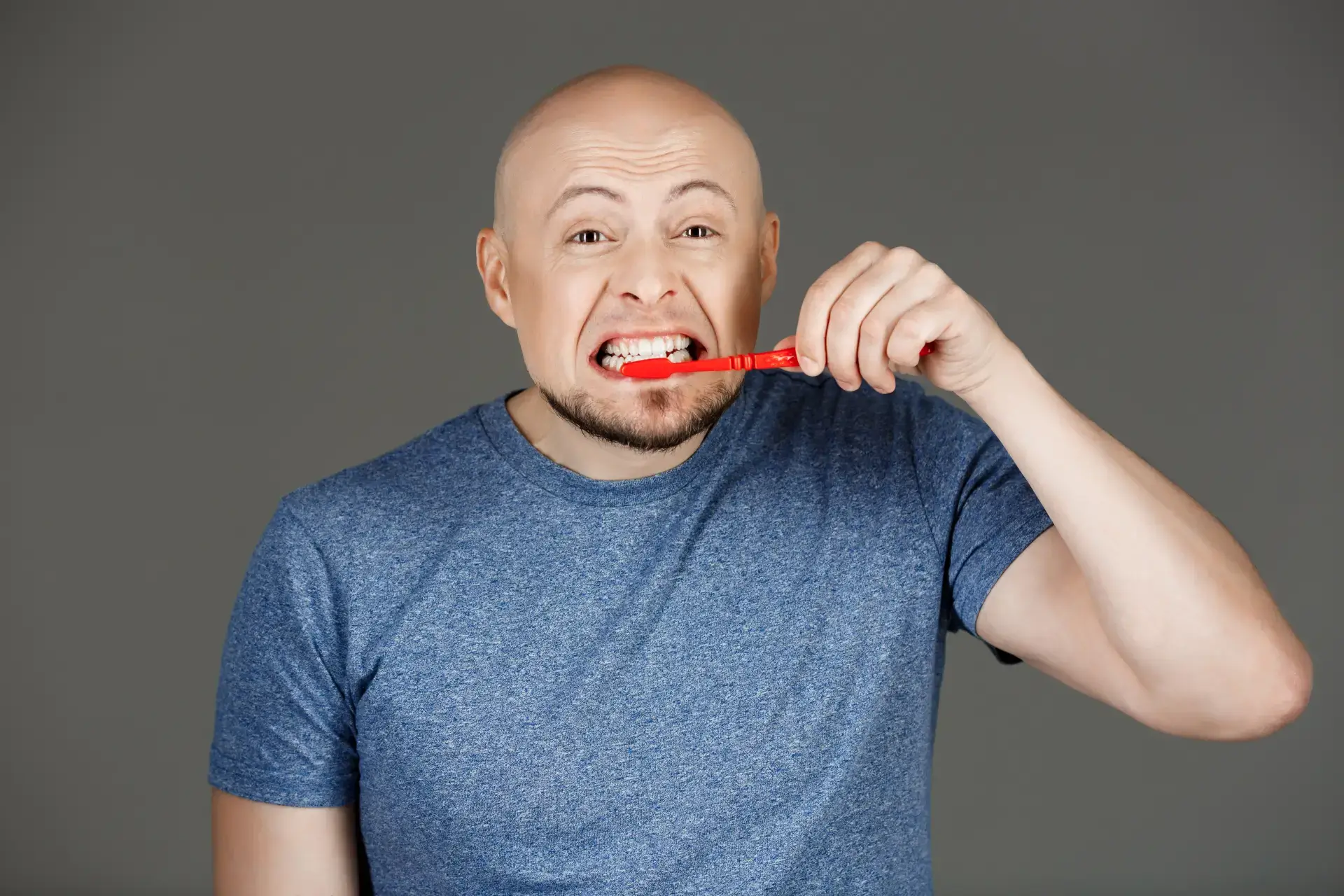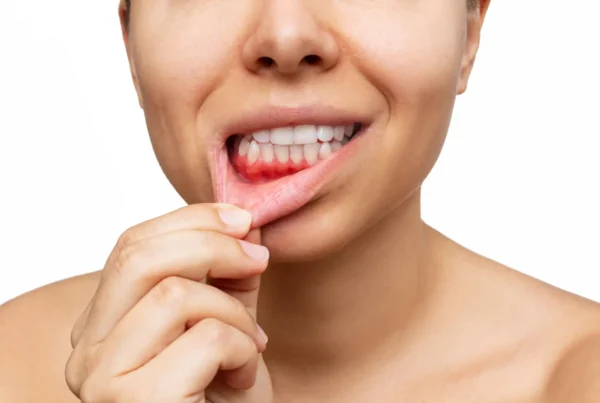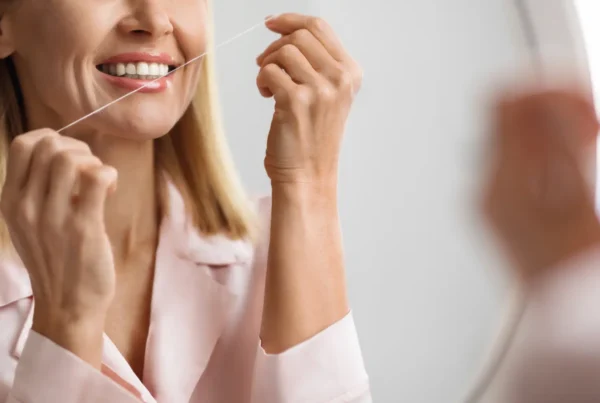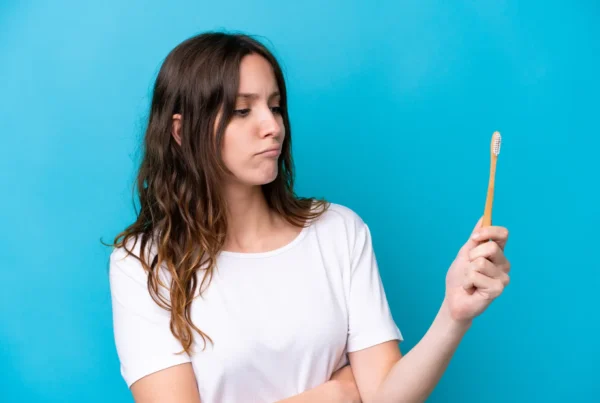- How many times a day should you brush your teeth?
- Is frequent tooth brushing harmful?
- What can happen if you brush your teeth too often?
- When is the best time to brush your teeth after eating?
- How often should you brush your teeth safely?
- Can you brush your teeth three times a day?
- What can you do instead of brushing?
- Summary
Taking care of your oral hygiene is one of the most important daily routines. Dentists say, “Brush your teeth twice a day,” so many people take this advice to heart. But what about those who brush their teeth after every meal, or even more often? Is it possible to overdo oral care? Can brushing too often… damage your teeth?
This is a question that, contrary to appearances, is worth asking, because although caring for cleanliness is commendable, some habits can do more harm than good. Below, we explain when brushing your teeth becomes excessive, what the possible consequences are, and how to care for your teeth without risking damage.

How many times a day should you brush your teeth?
According to most dentists and dental associations, it is best to brush your teeth twice a day: in the morning and in the evening, for at least two minutes each time.
Brushing in the evening is absolutely crucial, because at night, when there is less saliva, bacteria have more freedom to multiply. In the morning, we remove plaque and freshen our breath after sleep. Additional brushing after meals is not prohibited, but it is important to know when it can be harmful.
Is frequent tooth brushing harmful?
Yes, if it is done too often and/or in an inappropriate manner. Brushing itself is not harmful, but the problem begins when:
- we do it more than 3 times a day without justification,
- we use a toothbrush that is too hard,
- we press too hard or use a “scrubbing” technique,
- we brush our teeth immediately after an acidic meal or drink,
- we use toothpastes with a high abrasiveness level (RDA) at every session.
In such cases, overzealousness can lead to enamel abrasion, gum recession, and tooth sensitivity.
What can happen if you brush your teeth too often?
1. Enamel wear
Enamel is the hard protective layer of the tooth, but it is not indestructible. Frequent brushing with abrasive toothpastes or a toothbrush that is too hard can gradually weaken it. When enamel wears away, the tooth becomes more sensitive and susceptible to decay.
2. Gum damage
Brushing too vigorously (especially with horizontal “scrubbing” movements) can lead to gum recession. This, in turn, exposes the tooth necks—sensitive areas where the enamel is not protected.
3. Hypersensitivity
The result of the above changes? Pain when exposed to cold, heat, sweetness, or touch. Hypersensitivity can be very bothersome and require treatment.
4. Microflora imbalance
There are many beneficial bacteria in the mouth. Overly intensive hygiene (e.g., frequent use of antibacterial liquids) can disrupt the balance of the bacterial flora, which paradoxically promotes infections.
When is the best time to brush your teeth after eating?
The recommendation to “brush your teeth after every meal” is not wrong, but there is one important caveat: do not do so immediately after consuming acidic foods or drinks such as orange juice, citrus fruits, wine, coffee, or carbonated beverages.
The acidic environment softens the enamel, and brushing immediately after such a meal can damage your teeth. Wait at least 20-30 minutes before reaching for your toothbrush. During this time, saliva will naturally neutralize the acids and remineralize the enamel.
How often should you brush your teeth safely?
Recommended routine:
- Twice a day: in the morning and in the evening
- Additionally after meals – only if necessary (e.g., after very sticky, sweet food)
- wait at least 20 minutes after an acidic meal,
- clean the spaces between your teeth once a day (with dental floss or an irrigator),
- use mouthwash – max. 1–2 times a day, preferably alcohol-free.
Can you brush your teeth three times a day?
Yes, you can – if you do it correctly and without excessive force. The third brushing can be useful, for example, after lunch at work or after training, when your mouth is dry. It is important to choose the right toothbrush (e.g., a soft sonic toothbrush), a gentle toothpaste, and the correct technique.
What can you do instead of brushing?
When you want to clean your mouth after eating but don’t want to brush your teeth for the third time in one day, you can:
- rinse your mouth with water or a special alcohol-free liquid,
- chew sugar-free gum (with xylitol),
- use a water irrigator – e.g. Smilesonic AquaFlow, which gently rinses away food debris and bacteria without damaging the enamel,
- use dental floss or interdental brushes.
This is a great alternative for people with braces, veneers, or enamel hypersensitivity.
Summary
When brushing your teeth, it is important to remember that more is not always better. Brushing too often or too aggressively can lead to the opposite of the desired effect: enamel damage, gum recession, and pain. The key to a healthy mouth is consistency, gentleness, and tailoring methods to your own needs. Two thorough brushings of your teeth and one cleaning of the interdental spaces per day, plus regular hygiene at the dentist’s office – this is a plan that really works. The rest is a matter of common sense and observing your body.




